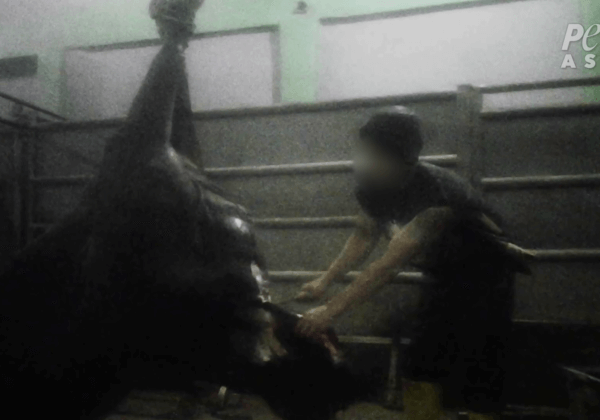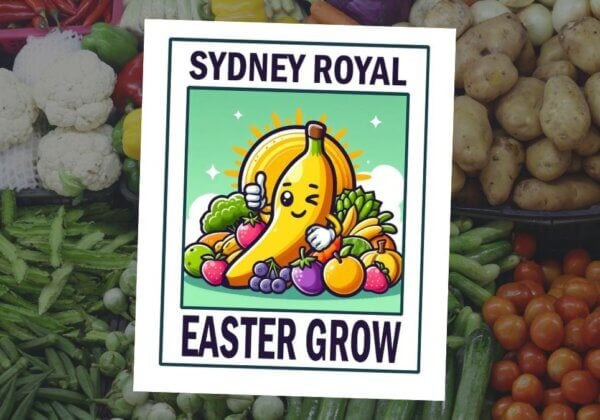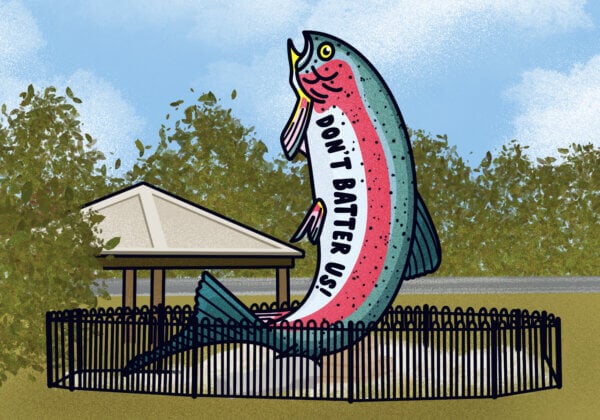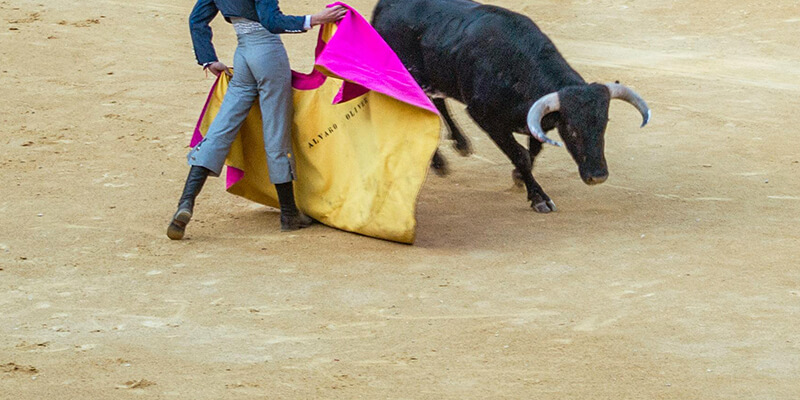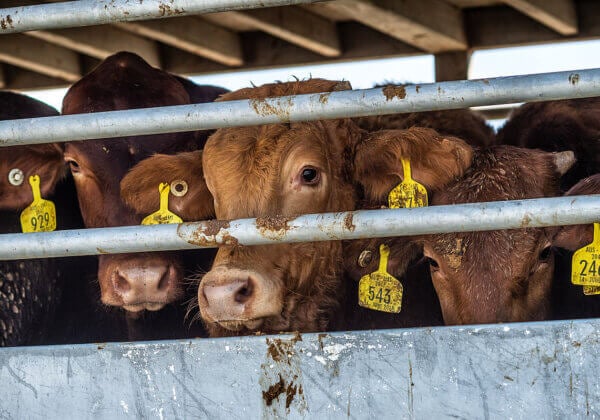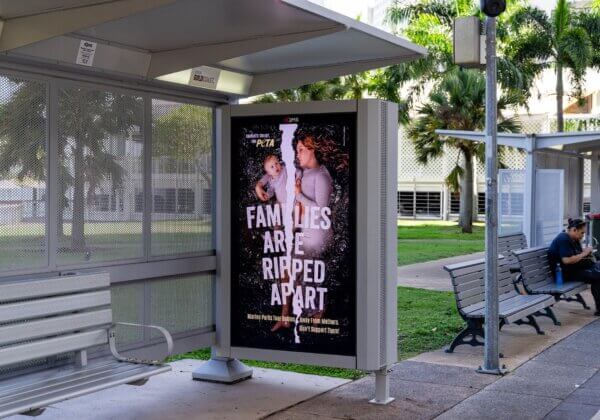Australia’s Wet Markets Also Sell and Slaughter Live Animals
It’s impossible to turn anywhere at the moment without being bombarded with news (including some fake news) about COVID-19. One thing scientists agree on is that the most likely origin of this novel coronavirus was a wet market in Wuhan, China. Most of the coverage is accompanied by horrifying images or descriptions of such markets – live animals writhing in cramped cages and tanks, workers in gumboots sloshing across floors coated with a mixture of blood and water, and dead bodies of various species lying still and glassy-eyed, awaiting purchase for human consumption.
 Jo-Anne McArthur / We Animals
Jo-Anne McArthur / We Animals These scenes have been met with shock and disgust, but if we’re honest, are they really that unfamiliar?
 Bear Witness Australia
Bear Witness AustraliaA fish being killed with a hammer at a live sea food store in Australia.
 Sydney Fish Save
Sydney Fish SaveA giant Tasmanian crab bound with zip ties at the Sydney Fish Market.
A Look at Australia’s Fish Markets
Walk around any meat market – such as the Sydney Fish Market or the Melbourne Fish Market – and you’ll observe the same carnage, the same disregard for life, and the same potential risks to human health. From the cruelty of imprisoning live, bound lobsters in small tanks to the danger of having piles of dead fish leaking their vital fluids onto mounds of constantly melting ice, these markets should trigger fear and disgust in anyone remotely concerned about animal welfare – including human well-being.
 Bear Witness Australia
Bear Witness AustraliaA fish at a live seafood store in Victoria.
We Must Shut Down the Biggest Areas of Risk
According to the US Centers for Disease Control and Prevention, more than 75% of emerging human diseases originate in other animals. The current virus – in its ability to jump from another species to humans, in whom it manifests serious and sometimes fatal symptoms – is similar to other infamous coronaviruses, including SARS and MERS. By allowing places that sell the already-decomposing corpses of animals – sometimes alongside live ones – to continue to operate, we’re not tackling the crux of the problem when it comes to preventing future pandemics.
“When you bring animals together in these unnatural situations, you have the risk of human diseases emerging.”
– Kevin Olival, disease ecologist and conservationist at the EcoHealth Alliance
A Chance to Change the World
As many people remain in their homes for fear of contracting the virus, it’s unfathomable that flesh markets in Australia are not only still open but also considered “essential” services. Leading health professionals agree that humans don’t need to eat meat in order to survive and that a well-planned vegan diet actually lowers our risk of developing heart disease and cancer, making it clear that the flesh of other animals is patently inessential.
Easter is typically the busiest time of year at the Sydney Fish Market. That COVID-19 originated in a market eerily similar to it should be a wakeup call to authorities to shut these types of venues down now if we’re to have any hope of protecting our health and economy.
Help us shut down these festering, cruel petri dishes by asking the World Health Organization to call for an end to live-animal markets worldwide.
Of course, you don’t have to wait for governments to do the right thing – you can be the change we need to see in the world right now by going vegan.

